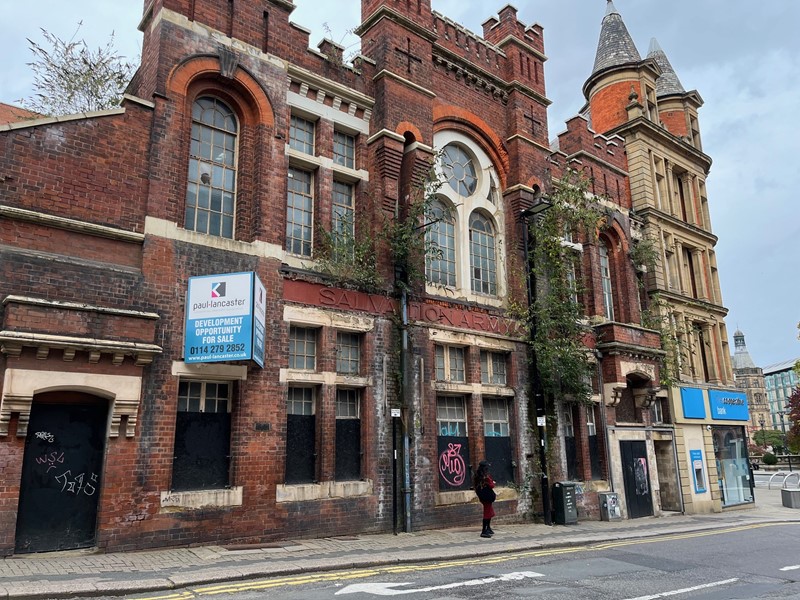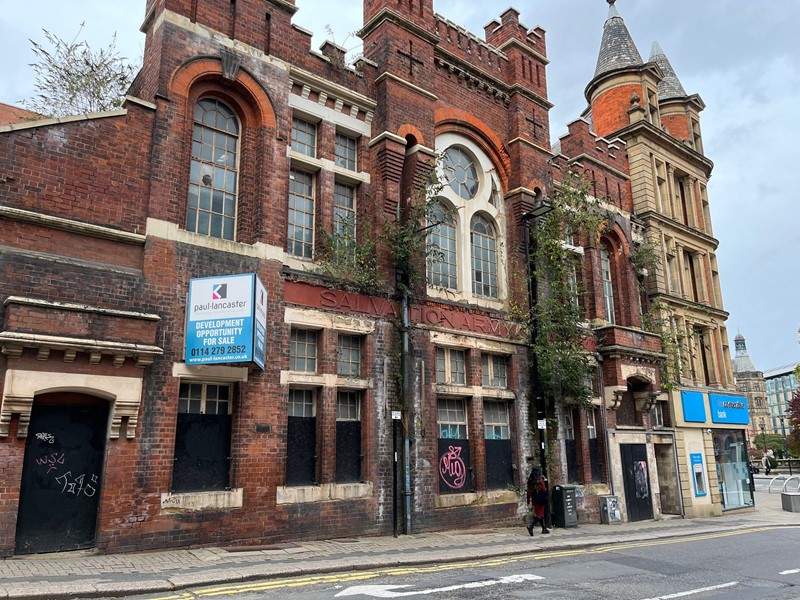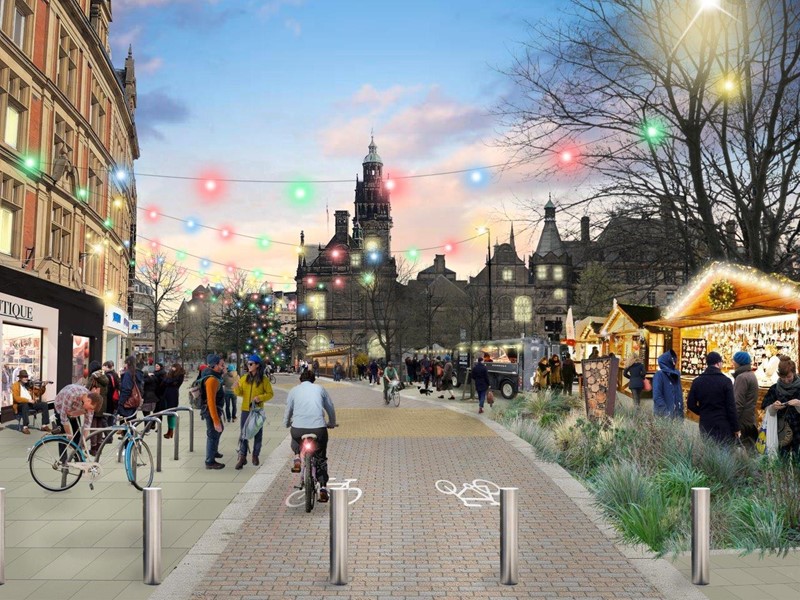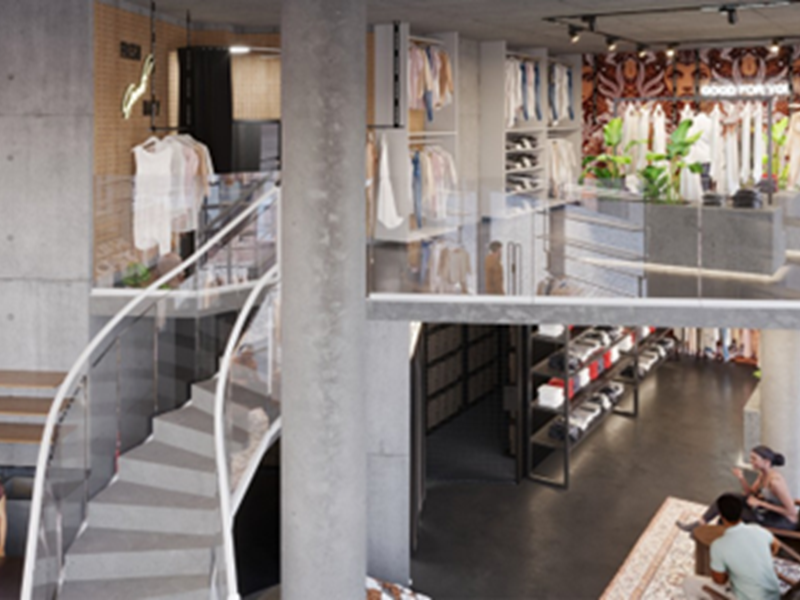When it first opened, more than a century ago, the former Salvation Army Citadel building would attract scores of people every Sunday to worship. However, pictures taken inside since Sheffield City Council acquired it show amount of work required to bring it back to life.
Phase 2 work underway at Castlegate as park begins to take shape
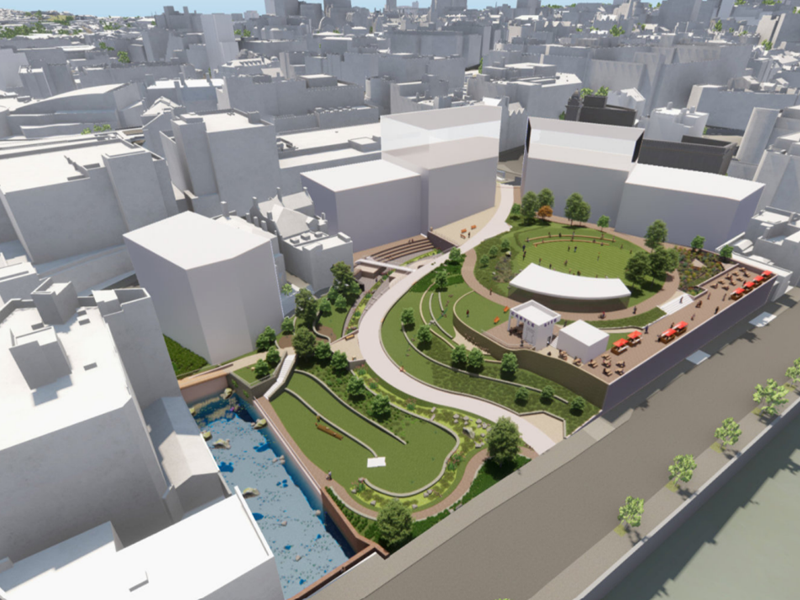
Work to transform a former Sheffield market site, which was once home to a medieval castle widely regarded as the birthplace of the city, has moved into phase two, with construction of the final public park starting to take shape.
Following extensive archaeological research at the former Castle Market site, including unearthing evidence of former steel works dating back to the 19th century and the remains of Sheffield Castle itself, the project now moves to redeveloping it into the park and events space.
During phase one of the project, Sheffield City Council has been working alongside construction company Keltbray with that partnership continuing with the engineering specialists continuing the transformation of the site for phase 2.
Cllr Ben Miskell, Chair of the Transport, Regeneration and Climate Policy Committee at Sheffield City Council, said: “This is a hugely exciting project which has already grabbed the attention of thousands of people not only in Sheffield but right across the country. Unearthing the remains of the city’s history has been fascinating but the work to transform the area from an archaeological site into the finished park really starts now.”
Throughout the process, Wessex Archaeology, who have been uncovering the remains of the castle during phase one, will remain on site to ensure those remains are preserved and ready to go on public display once the project has been completed.
Once complete, the Castlegate site will be transformed into a public park area with remains of the 12th century Sheffield Castle on display for the first time since it was demolished in the late 1600s. A 500 people capacity events space will also be created on the site of a former 17th century bowling green, with heritage interpretation boards and public art giving further nods to the site’s historic past.

Tim Barber, Operations Director for Keltbray said: “Keltbray is delighted to be awarded this second phase of work at Castlegate. During the first phase, we were able to learn more about the historic significance of this part of the city. We’re now looking forward to being able to provide recreational facilities, and investment opportunities for people living and working in Sheffield.”
The River Sheaf, which gives the city it’s name, will also be opened up as part of the phase 2 work making it visible in the city centre for the first time since the Victorian age.
Cllr Miskell added: “Many people who have lived in the city for decades won’t have known that it was once the site of a historic castle, this project will change that. It will also give everyone the chance to see the castle and learn about the history of it, including the time when Mary Queen of Scots was held prisoner there.
“Castlegate is going to be an amazing place, a park inside the city, and one that will link in brilliantly with the regeneration work we are carrying out elsewhere, not only in the city centre but across Sheffield as well.”
“Castlegate is an important chapter in the story of Sheffield city centre’s regeneration, as we transform it into a cleaner, greener, and more vibrant place to live, work, and visit. Along with the likes of West Bar, the reimagined Fargate, the Heart of the City development, and all the new transport infrastructure, Castlegate’s new public park will help us achieve our vision of a city centre fit for the future.”
Phase two work started in July 2024 with the whole project expected to be completed in early 2026.
